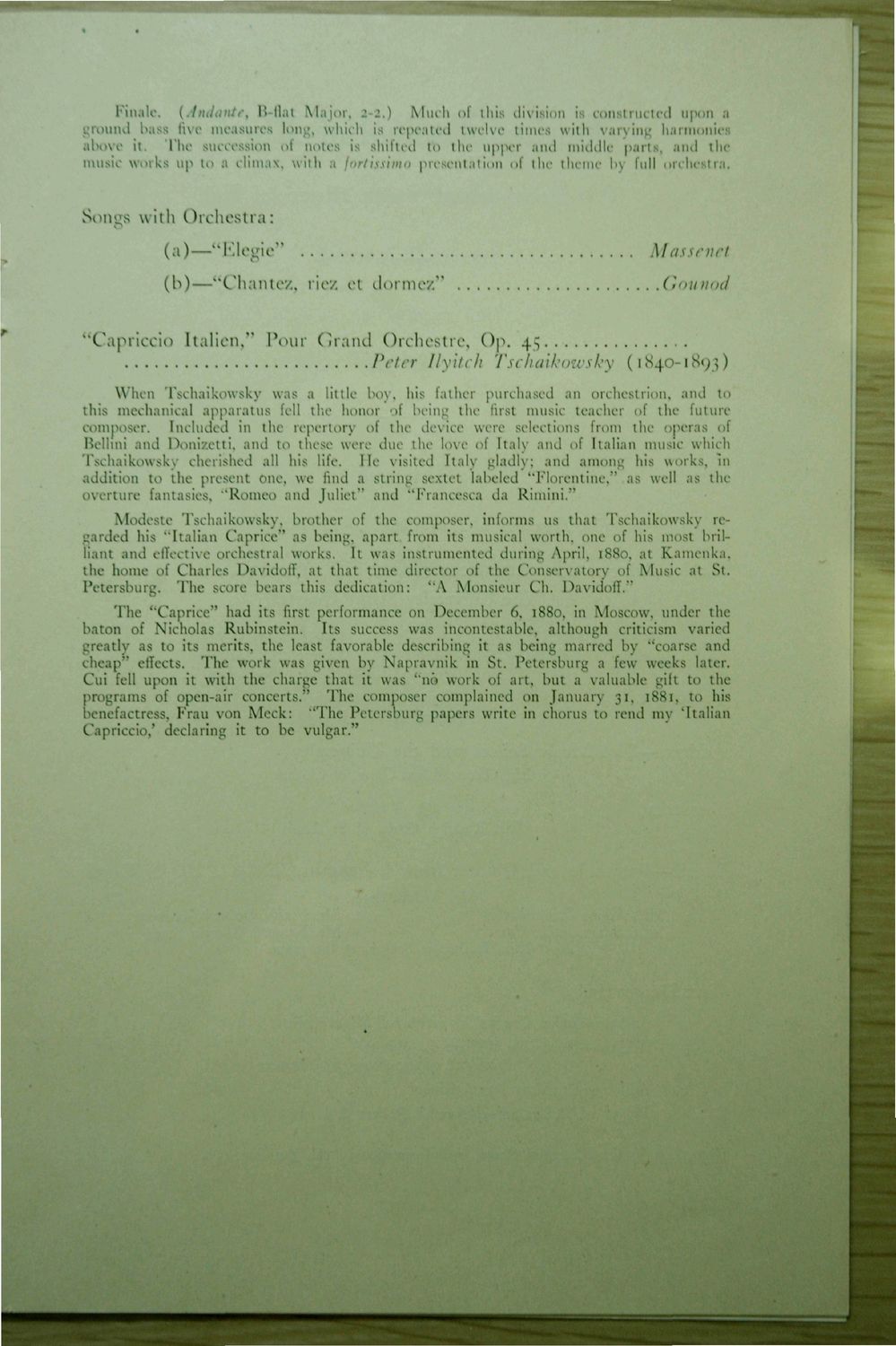| |
| |
Caption: Dedication - Smith Music Hall
This is a reduced-resolution page image for fast online browsing.

EXTRACTED TEXT FROM PAGE:
Finale. (dndatUt, B-flat Major, 2-2.) Much of this division is constructed upon a ground bass five measures long, which is repeated twelve times with varying harmonies above it. The succession of notes is shifted to the upper and middle parts, and the music works up to a climax, with a fortissimo presentation of the theme by full orchestra. Songs with Orchestra: (a)—"Elcgie" • % • (b)—"Chantez, ricz et dormcz" "Capriccio Italicn," Pour Grand Orchestre, On. 45 Peter llyhch Tschaikowsky Massenet Gounod (1840-1893) When Tschaikowsky was a little boy, his father purchased an orchestrion, and to this mechanical apparatus fell the honor of being the first music teacher of the future composer. Included in the repertory of the device were selections from the operas of Bellini and Donizetti, and to these were due the love of Italy and of Italian music which Tschaikowsky cherished all his life. I le visited Italy gladly; and among his works, in addition to the present one, we find a string sextet labeled "Florentine," as well as the overture fantasies, "Romeo and Juliet" and Francesca da Rimini." Modeste Tschaikowsky, brother of the composer, informs us that Tschaikowsky regarded his "Italian Caprice" as being, apart from its musical worth, one of his most brilliant and effective orchestral works. It was instrumented during April, 1880, at Kamcnka, the home of Charles Davidoff, at that time director of the Conservatory of Music at St. Petersburg. The score bears this dedication: "A Monsieur Ch. Davidoff." The "Caprice" had its first performance on December 6, 1880, in Moscow, under the baton of Nicholas Rubinstein. Its success was incontestable, although criticism varied greatly as to its merits, the least favorable describing it as being marred by "coarse and cheap' effects. The work was given by Napravnik in St. Petersburg a few weeks later. Cui fell upon it with the charge that it was ('no work of art, but a valuable gift to the programs of open-air concerts. The composer complained on January 31, 1S81, to his benefactress, Frau von Meek: "The Petersburg papers write in chorus to rend my 'Italian Capricck)/ declaring it to be vulgar."
| |